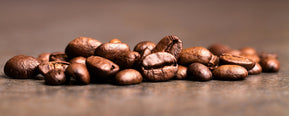Opening an old book often brings a smell that feels instantly familiar. It smells dry, a bit woody, and often carries a sweet note like vanilla. Many people call it nostalgic. Others describe it as earthy, leathery, or dusty. No matter the words, the smell of books always feels more meaningful than simple chemistry.
Scientists explain this through chemistry. As paper and ink age, they release small molecules that create the scent. Readers experience something deeper. They connect the smell to memory and story, as if each book speaks through fragrance.
What Is the Smell of Books?
It is hard to describe how the books smell, because they are so varied. Most of the time, people will say it is:
- Fresh and clean scent in new books (paper, ink, glue)
- Sweet, warm, and vanilla-like in old books
- Woody and slightly dusty undertones
- Hints of dried flowers or almond-like notes
- Overall feeling: it is cozy, nostalgic, and comforting
Scientifically, the smell of books comes from a mix of compounds:
- Vanillin creates a sweet, warm note similar to vanilla or old wood
- Furfural smells like almond or baked bread
- Benzaldehyde adds a cherry-like scent
- Acetic acid and toluene add sharper, slightly chemical tones
Book scents contain paper, ink, glue, and fabric. As these materials grow older, they release compounds called volatile organic compounds (VOCs). These VOCs create the smell we recognize.
These compounds blend to form the scent people associate with books. Just like perfumes, the smell of books changes depending on how they were made and stored. Paper type, ink, and binding all play a role. Each book carries its scent fingerprint, shaped by time and environment.
How Do Materials Change The Book's Scent?
In short, not all books smell the same; their scent depends on the paper, ink, glue, and cover materials.
That’s why a cheap paperback, a glossy art book, and a century-old leather-bound novel will all have very different aromas.
Here is the breakdown:
-
Paper Quality
- Wood pulp paper: Ages faster, producing a stronger vanilla/woody aroma (from vanillin)
- Acid-free paper: Ages more slowly, so it smells less sweet and more neutral over time
- Coated/glossy paper: Has extra chemicals (clays, coatings), therefore it can smell more “chemical” or synthetic
-
Ink Types
- Oil-based inks: Give off a slightly inky, resinous scent when freshly printed.
- Modern soy or water-based inks: Smell milder, sometimes barely noticeable
-
Bindings & Glue
- Animal glue (older books): Adds a musty or leathery undertone
- Synthetic glues (modern books): Lighter smell, sometimes plasticky
-
Covers
- Cloth or leather covers: Can add earthy, leathery, or musty notes
- Paperback/plastic-coated covers: Often have a slight chemical or plasticky odor
These small changes inspired perfume because it combines science (volatile compounds of paper) with poetry (nostalgia, comfort, imagination). Perfumers recreate the book scent using vanilla, almond, woody, leathery, and powdery notes, bottling the experience of stepping into a beloved library.
Why Do Most People Love The Smell of Books?
The love for book scent comes from a fascinating mix of science, memory, and emotion. When paper, ink, and glue interact over time, they release natural compounds that smell sweet, woody, and slightly earthy. Notes like vanilla (from lignin), almond-like tones, and faint floral or dusty accents give books a fragrance that feels familiar and comforting.
1. The Chemistry Creates Pleasant Notes
Books are made from paper, ink, and glue, and as these materials age, they release natural compounds into the air.
Paper, for example, contains lignin, which breaks down over time and gives off the vanillin-like molecules that add a soft, vanilla-like note.
Alongside this, other molecules like benzaldehyde (almond-like), furfural (sweet and bread-like), and ethyl hexanol (floral) contribute to the scent.
Together, these notes create a fragrance that is naturally warm, inviting, and enjoyable to our senses.
2. Nostalgia and Emotional Connection
Beyond the science, the smell of books is deeply tied to memory and emotion.
For many people, the scent sparks vivid recollections of childhood reading, quiet afternoons in school libraries, or the thrill of visiting secondhand bookstores filled with hidden treasures. This nostalgic connection makes the smell more than just chemistry; it becomes an emotional time machine, linking us back to comforting and formative experiences.
3. A Sense of Comfort and Belonging
The aroma of books creates an atmosphere that feels safe, cozy, and intellectually rich. Unlike sharp synthetic scents, the smell of books is subtle, layered, and grounding. It signals a space of learning, imagination, and escape from the outside world.
That’s why stepping into a library or holding an old novel can feel like coming home. The scent itself provides a sense of belonging and comfort, amplifying the joy of reading.
The Connection Between Perfume and Book Scent
Just as the smell of books sparks memory and imagination, perfume is often designed to tell a unique story.
Niche perfumers, in particular, borrow the idea of a “book scent” to create fragrances that remind wearers of libraries, antique shops, or the atmosphere of a favorite novel. It turns an abstract idea, the comfort of reading, into something tangible you can wear.
FAQs
1. Do new books have a scent, too?
Yes. New books smell like ink, glue, and fresh coatings. Their scent feels sharper and brighter than older books.
2. Can perfumes recreate the smell of books?
Yes. Some perfumes include notes of paper, ink, vanilla, and wood to create a book-like scent.
3. Why Do Old Books Smell Different from New Books
New Books: You smell mostly fresh paper fibers, glue, and ink solvents.
Old Books: Breakdown of lignin, adhesives, and other VOCs, creating that vanilla, almond, woody, and a little bit of dusty bouquet.
4. Which books smell the strongest?
Books printed in the 20th century on wood pulp paper often have the most noticeable scent.
5. Why do some books lose their smell?
Books stored in stable or treated conditions may stop releasing strong scent compounds.


